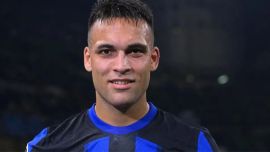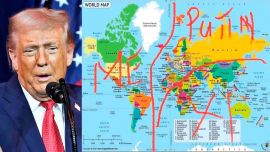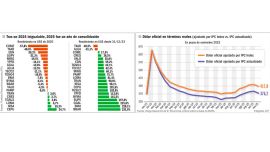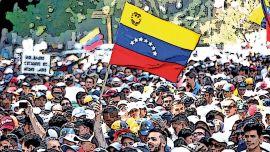Unless there is a surprise move, Peronism is resigned to face – for the first time since their creation – a Simultaneous and Compulsory Open Primary (PASO). Notably, this did not happen in any of the three elections of the past decade, not in 2011, 2015 or 2019. With signs of exhaustion apparent and after months of internal dissent, even Interior Minister Eduardo ‘Wado’ De Pedro admits that "Alberto Fernández has the right to be part of a PASO.”
The biggest problem is that the different sectors of the ruling Frente de Todos coalition are awaiting orders "from above." They doubt about which side it’s better to be on in the event that a Peronist primary is confirmed.
"The PASO means that whoever loses will be left out. You have to put together lists, everything is going to be mixed up. It's a headache," a party leader from Buenos Aires Province told Perfil. The dispersion means that there is general confusion.
The dispersion means that there is general confusion. On the one hand, the president knows that he would likely lose an internal election, so he is delaying his decision to take this to a last-minute negotiation, in order to obtain the greatest possible advantage in case he drops out. His main alternative? To support the candidacy of former presidential candidate Daniel Scioli (although some have begun to spread the rumour that the current ambassador to Brazil could be a candidate for the mayoral post in Buenos Aires City).
On the Kirchnerite side of things, Plan A is that the candidate is Vice-President Cristina Fernández de Kirchner, although those close to her note that she does not seem to have the idea of changing her position on not running. Plan B? ‘Wado’ de Pedro himself. “He lacks knowledge, but if Cristina puts him by her side in the race he will get up fast,” a pollster who works for Peronism told Perfil.
If Máximo Kirchner could decide the strategy on his own, he would seek to bring Axel Kicillof into the PASO, but the Buenos Aires Province governor wants nothing to do with it. He will go for re-election in Buenos Aires “unless Cristina asks him to,” according to those in his entourage. That is why Kicillof’s Cabinet chief, Martín Insaurralde, is waiting silently. In the event that Kicillof enters the presidential race, Insaurralde is his number one candidate for the seat in La Plata.
Insaurralde’s team know that this time, surely, he will have to wait. “The fight in Buenos Aires [Province] will be very even, the move to send Kicillof could be lethal and [we could] lose everything,” says one of his close friends.
From his position, Economy Minister Sergio Massa has not been able to put the economy in order at the pace he promised when he took office. The pressure he puts upon himself because of inflation has lowered his actions and ambitions in the run-up to October’s election. Although he does not rule out running, he is not generally enthusiastic about the PASO. He had hoped to be the candidate “of unity,” but that feeling seems more and more distant.
And the governors? Juan Manzur is not giving up hope, but first he wants to win the election in Tucumán, where he is running as lieutenant -governor to gubernatorial candidate Osvaldo Jaldo. That vote takes place on May 14. Once victory is assured, Manzur will seek to raise his profile as “the governors’ candidate”.
The dilemma is who will line up behind him, since Jorge Capitanich (Chaco) has not given up hope of being CFK’s chosen one. Other Peronist governors of weight such as Juan Schiaretti (Córdoba), Omar Perotti (Santa Fe) and Gustavo Bordet (Entre Ríos) seem to continuing to explore the third way.























Comments